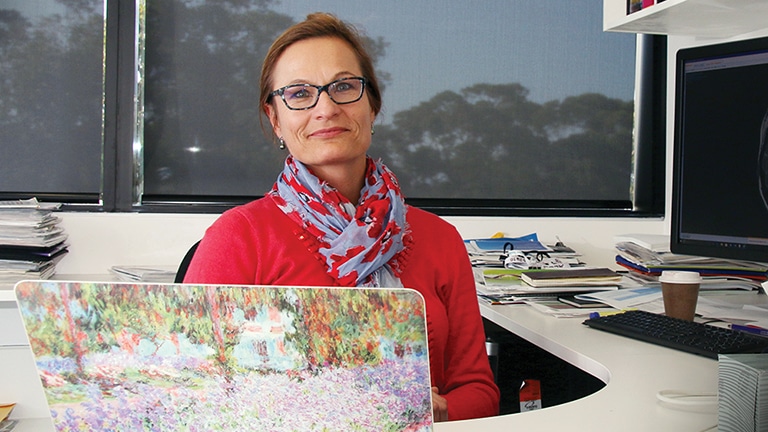
The search for a blood-based Multiple Sclerosis (MS) biomarker has been boosted with new seed funding for Prof. Jeannette Lechner-Scott

The scientific search for a blood-based Multiple Sclerosis (MS) biomarker, described as one of the Holy Grails of research, has been bolstered with new seed funding for Professor Jeannette Lechner-Scott from the Hunter Medical Research Institute and University of Newcastle.
MS Research Australia recently awarded a $25,000 ‘incubator’ grant to help Professor Lechner-Scott’s team decode the genetic signals that blood cells release at the different stages of MS disease progression.
Inspiration for the study came from glioblastoma, a form of brain cancer, where tiny communication particles known as extracellular vesicles have been found to indicate a spread of tumour cells.
“The same might be the case in Multiple Sclerosis, where cells are spreading from one lesion to other areas of the brain” Professor Lechner-Scott, a staff specialist at John Hunter Hospitals’ neurology department, says.
“Our current clinical practice is to use MRI to monitor disease, but we know that brain tissue which appears normal on the scans can still be diseased.
“A biomarker that shows when the disease is active and needs adjustment of treatment would be our Holy Grail. In this case it would require a simple blood test, allowing physicians to take early and appropriate treatment approaches.”
Extracellular vesicles contain microRNAs that vary depending on the disease course. Professor Lechner-Scott will first identify the origin of these particles in people with MS, and then sequence the genetic material within them to decode the cellular signaling.
“The microRNA may give us insight into how the cells in the brain are communicating, and reveal new ways to treat MS,” she adds. “It’s quite likely to become a biomarker in relapsing MS and we might also find new therapeutic options – in glioblastoma, for example, they are working to modify the microRNA to stop disease spread.”
Multiple Sclerosis is a chronic autoimmune disease that attacks the central nervous system, directly impacting around 2.3 million people worldwide. Women make up three out of every four people diagnosed in Australia, with diagnosis usually made between the ages of 20 and 40.
* HMRI is a partnership between the University of Newcastle, Hunter New England Health and the community.
HMRI would like to acknowledge the Traditional Custodians of the land on which we work and live, the Awabakal and Worimi peoples, and pay our respects to Elders past and present. We recognise and respect their cultural heritage and beliefs and their continued connection to their land.

Hunter Medical Research Institute
We’re taking healthy further.
Locked Bag 1000
New Lambton
NSW, Australia, 2305



This site is protected by reCAPTCHA and the Google Privacy Policy and Terms of Service apply.
Copyright © 2024 Hunter Medical Research Institute | ABN: 27 081 436 919
Site by Marlin Communications
